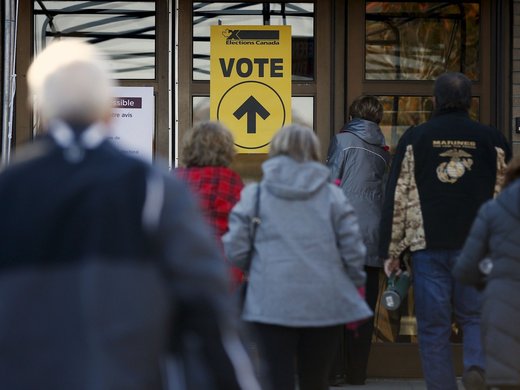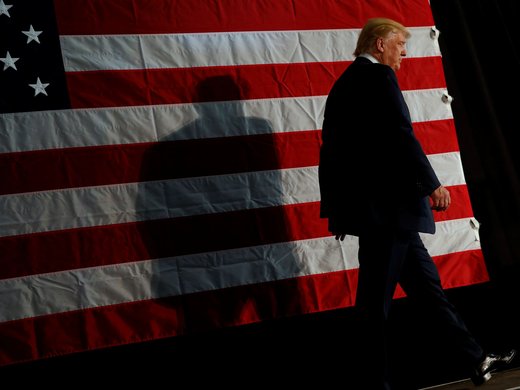The list keeps getting longer. The UK qualified in June by voting to leave the European Union. The United States joined in November with the election of Donald Trump as president.
France is now definitely on it, after centre-right voters rejected conventional insiders in favour of the less conventional François Fillon, and we have to add Italy, where the anti-establishment Five-Star was strengthened by a vote against the government’s constitutional reform.
This list is of Western countries whose voters have defied most experts’ advice about what is good for them. The big question is why the established authorities have become so unpopular. The conventional answer is economic, and basically wrong.
A typical explanation goes like this. The rejecters – the voters for Brexit, Trump, Fillon, Five-Star and so forth – are largely the left-behind. They are people who have been hurt by rapid globalization, who struggle to get good jobs and who are nostalgic for a social order in which they had a higher standing. For them, economic uncertainty has bred resentment, against immigrants, the cosmopolitan elite and, among American whites, members of other races.
Statistics can be marshalled to support this analysis. The rejecters tend to be poorer, less urban and less educated than their opponents. They also tend to be older, although the age gap is smaller than might be expected for a sentiment that is largely backward-looking. If an economic explanation is called for, this one seems to work reasonably well.
The rejected, the losers in the recent votes, also have a good psychological reason to promote the left-behind analysis. This characterization casts them as good guys, representatives of reason and economic success, and leaves their victorious opponents to represent ignorance and failure.
The facts, though, do not fully support such a simple and morally clear division. To start, the economically left-behind are not a large enough group to win a national election. In the United States, the broadest official definition of labour market sufferers – unemployed plus marginally attached workers plus people working part-time for economic reasons – was 9.1 percent of the workforce in October. Perhaps that proportion should be doubled to include workers who have taken pay cuts to stay employed or have left the labour market in disgust and despair.
But even if all of this 18 percent voted for Trump, they would be nowhere near enough to carry him to victory. And it is certain that many of these suffering people voted for Hillary Clinton, since a high proportion of the American unemployed and under-employed are black or Hispanic, groups which are still strongly Democrat. Trump garnered the votes of a significant minority of the non-left-behind.
The story is similar in the UK. Brexit would not have won without substantial support from the economically successful, including a fair number of university graduates. In France, Fillon hardly represents the left-behind at all. His support is thought be especially strong among the prosperous small town bourgeoisie.
There is another problem with this economic explanation. It comes too late. In the United States, the 2012 presidential election was a much better one for a left-behind protest. Then the broad measure of labour sufferers was 13.9 percent, well above the long-term average of 10.5 percent. The UK unemployment rate is also low by historic standards, and the great factory closings there took place decades ago. By most conventional standards, British workers do not really have a lot to complain about. In France, the economic case is particularly weak, since labour market reforms are the least popular part of the Fillon agenda.
A more realistic interpretation of the data is that economic motivations only explain a relatively small part of voters’ rejection of the establishment. Political, social and cultural factors are much more important.
Such broader explanations fit with the views expressed in surveys of disgruntled voters. While some of them do bring up economic issues, it is often in the context of a more fundamental alienation. They complain about such issues as excessive pressure on families, the damage immigration does to existing communities, the loss of a positive national identity, skewed moral values and a ruling class of excessively rich business people and detached bureaucrats in cahoots with unresponsive and venal politicians.
Indeed, the economic explanation dodges the big trend. The liberal democratic system, which has flourished in the West and gradually spread around the world for most of the last half-century, is no longer widely accepted as good, and its leaders are widely mistrusted. In rich countries, a big group of voters, sometimes a majority, are saying “no” to the established order.
The weakness is not just found in the Western homelands of the prosperous welfare state, multi-party democracies and socially and morally progressive elites. The list of nations which have drifted towards authoritarian rule, often in the form of what Hungary’s prime minister Viktor Orban calls illiberal democracy, now includes Russia, Turkey, the Philippines, and China. In all of these countries, the majority of the people are firmly behind their strong leaders. And almost nowhere is the political trend now moving in the opposite direction.
The explanation for the global shift is certainly not predominantly economic. The economies of countries which are abandoning contemporary liberal values and adopting more authoritarian structures range from thriving to struggling. Something else is going on.
What is driving this shift of values is a crucial subject for debate. The Westerners in the establishment and their academic supporters still have the freedom to discuss such matters. They should not squander the opportunity. If they cannot find a way to make their political, social and, yes, economic systems less alienating to the masses, that freedom could well wither away.
Edward Hadas was economics editor at Thomson Reuters, where he continues to contribute to Reuters Breakingviews. He also did a stint with the Financial Times’ influential Lex column, following 25 years as a financial analyst with firms like Morgan Stanley and Putnam Investments. Edward has degrees in philosophy, classics and mathematics from Oxford University and Columbia University and an MBA from SUNY Binghamton.


